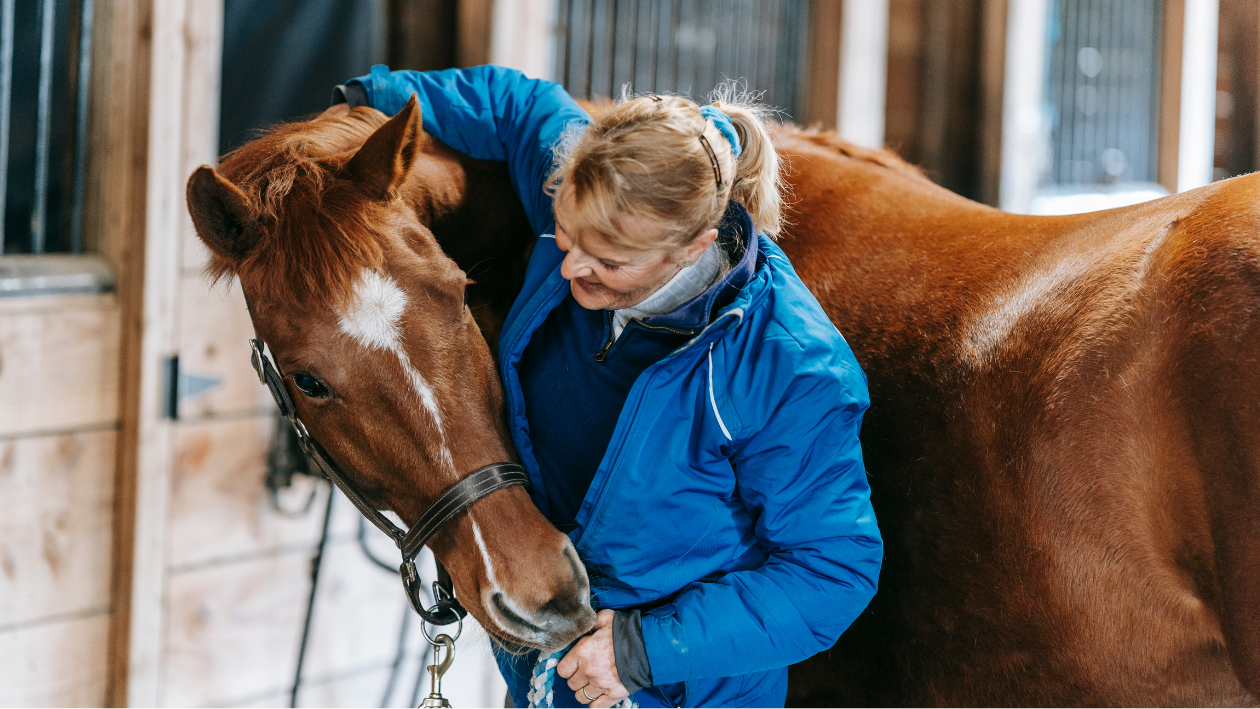Equine Respiratory Health: What You Need to Know
As horse owners, keeping your horses healthy and happy is a top priority. One key area to focus on is their respiratory health. Horses can suffer from a range of breathing problems, and it's important to know what to look out for and what to do about it.
Common Causes of Breathing Problems in Horses
A variety of factors can contribute to respiratory problems in horses. Understanding these is key to prevention and effective treatment:
Environmental Factors:
- Dust and Allergens: Stables with poor ventilation can accumulate dust and mold, leading to respiratory distress.
- Weather Changes: Sudden weather changes can also trigger respiratory issues.
Infectious Agents:
- Bacteria and Viruses: Common equine respiratory infections are often caused by bacteria or viruses, leading to conditions like equine influenza.
- Parasites: Lungworms can cause significant respiratory issues, especially in pastured horses.
Physical Stressors:
- Intense Exercise: High-performance horses are particularly susceptible to exercise-induced respiratory problems.
- Travel Stress: Transportation can be stressful and expose horses to various pathogens.
Underlying Health Conditions:
- Anatomical Abnormalities: Conditions like laryngeal paralysis can impede normal breathing.
- Chronic Conditions: Horses with respiratory problems are more prone to recurrent issues.
Spotting the Signs: When to Call the Vet
Here's what to keep an eye out for:
- Coughing: A persistent cough is a clear sign that the horse needs to be checked out.
- Runny Nose: Any unusual nasal discharge could be a sign of infection.
- Breathing Troubles: If your horse seems to struggle to breathe, that's a big red flag.
- Acting Off: It could be a respiratory issue if they're not their usual self, especially during exercise.
- Fever: Sometimes, a fever comes along with breathing problems.
If you notice any of these, it's time to call your vet.
Treatment Options: Addressing the Specific Needs
Treatment depends on what's causing the problem:
- Medicines: Antibiotics can help with bacterial infections; other meds might reduce inflammation.
- A Better Home: Improving the air quality where your horse lives can make a big difference.
- Rest: Horses need to take it easy when recovering.
- Special Care: Sometimes, treatments like nebulization (a kind of steam treatment) help.
The vet might need to do some tests to determine exactly what's wrong.
Keeping Your Horse Healthy
Prevention is always better than cure. Here's how you can help keep your horse's lungs healthy:
Clean Living Space: Keep their stable clean and well-ventilated.
Regular Vet Visits: Catch problems early with routine check-ups.
Stay Up to Date on Shots: Vaccinations can protect against common respiratory bugs.
Keep Worms at Bay: Regular deworming helps prevent lungworm infections.
Smart Exercise: Avoid overworking your horse and make sure they get plenty of rest.
Breathing issues can be serious, but your horse can stay healthy and happy with the right care and attention. Keep an eye out for any signs of trouble, and always feel free to contact your vet with any concerns. After all, a healthy horse is a joy to be around!
Book an Appointment at Cedarbrook Veterinary Care
If you're concerned about your horse's respiratory health or just want a routine check-up, we're here to help. At Cedarbrook Veterinary Care, our team of experienced veterinarians is equipped to provide the best care for your equine friend. Don’t wait for symptoms to worsen. Book an appointment with us today and ensure your horse remains healthy. Remember, a proactive approach is the best way to ensure the well-being of your beloved horse.
Cedarbrook Veterinary Care.
By accepting you will be accessing a service provided by a third-party external to https://cedarbrookvet.com/




